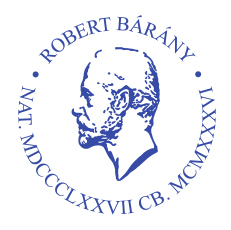What is Vestibular Medicine (VestMed)?
Vestibular Medicine comprises all healthcare activities related to vestibular disorders. For this, it should be noted that vestibular disorders are all disorders affecting vestibular function, including the inner ear, vestibular nerves, and brain. VestMed is practiced by different physician specialties and non-physician health professionals. Each profession has its characteristic disciplinary role and profile, but the work of each profession overlaps with others.
Which health professionals can practice Vestibular Medicine?
All professionals potentially involved in diagnosing and treating patients with vestibular disorders can practice VestMed (e.g. neurologists, audiovestibular physicians, otorhinolaryngologists, physical therapists, audiologists, psychologists, etc.). The Bárány Society’s position is that no disease or disorder or syndrome or method belongs exclusively to a particular physician specialty or non-physician health profession. Therefore, VestMed should be considered as an intrinsic or additional extended competence to established physician specialties and non-physician health professions and aims to be as inclusive as possible.
What is expected from a Vestibular Medicine health professional?
All VestMed health professionals should have a good awareness of the variety of disorders that can present with vestibular symptoms, their underlying mechanisms and etiologies, diagnostic criteria, and treatment options. Similarly, they would need to understand their own limitations, the contribution to patient care from other professionals and when to involve other members of the VestMed community.
Why to create a specific curriculum for Vestibular Medicine?
Vertigo, dizziness, and unsteadiness are frequently encountered symptoms in clinical practice and emergency rooms. Unfortunately, up to 80% of patients with vestibular symptoms do not receive the proper diagnosis or treatment. One of the reasons includes limited knowledge, skills and attitudes of individual clinicians and therapists. The poor diagnosis and treatment of patients with vestibular disorders emphasizes the need for a standardized, globally accepted Vestibular Medicine curriculum on which to base the education and training of clinicians and therapists.
How many levels are included in the VestMed Curriculum?
There are two levels in the VestMed Curriculum: the Basic Level and the Expert Level. Their range of topics are the same and runs from anatomy, physiology, and physics of the vestibular system to vestibular symptoms, history taking, bedside examination, ancillary testing, the various vestibular disorders, their treatment and professional attitudes.
The Basic Level Curriculum covers the VestMed topics in less detail and depth, yet still conveys the concept of the wide net approach. It is designed for health professionals as an introduction to, and first step toward, VestMed expertise.
The Expert Level Curriculum covers the VestMed spectrum in high detail and requires a high level of understanding. Additionally, research topics relevant to clinical practice are included in the Expert Level Curriculum.
Differences between the Basic Level and Expert Level Curriculum are presented in Table 1.
| Level | Subject areas | Detail within subject areas | Level of knowledge and skills |
| Basic | 8 | Limited | – Basic minimum requirements – All clinical backgrounds have the same grading |
| Expert | 8+ Research Topics | Expansive | – High minimum requirements – Each clinical background has its own grading (VestMed profiles) |
What levels of VestMed proficiencies can be attained?
Three types of VestMed proficiencies can be attained: Basic proficiency, Broad Expert proficiency and Focused Expert proficiency.
Basic proficiency is considered the basis for all VestMed professionals and is intended to promote a low-threshold access to the fundamentals of VestMed. Mastering the knowledge and skills of the Basic level curriculum leads to Basic proficiency in VestMed.
Broad Expert proficiency is the highest proficiency in VestMed. It is indicated for health professionals who desire to practice VestMed as a main activity within their own clinical background. This is attained by mastering the entire Expert Level Curriculum at the levels defined for their specific clinical backgrounds.
Focused Expert proficiency is indicated for VestMed professionals who would like to expand their knowledge and skills beyond the Basic Level Curriculum, in one or a few specific topics related to focused expertise, e.g. inner ear surgery or laboratory testing. A Focused Expert proficiency is therefore attained via an expansion in detail and depth of a limited number of topics of the Basic Level Curriculum to expert levels.
Differences between the levels of proficiency are demonstrated in Table 2.
| Level of proficiency | Vestibular Medicine Curricula needed to reach proficiency |
| Basic | Basic Level Curriculum |
| Broad Expert | Basic Level Curriculum + Expert Level Curriculum |
| Focused Expert | Basic Level Curriculum + only specific topics of Expert Level Curriculum |
The information on this website is obtained from: van de Berg et al. 2022.
